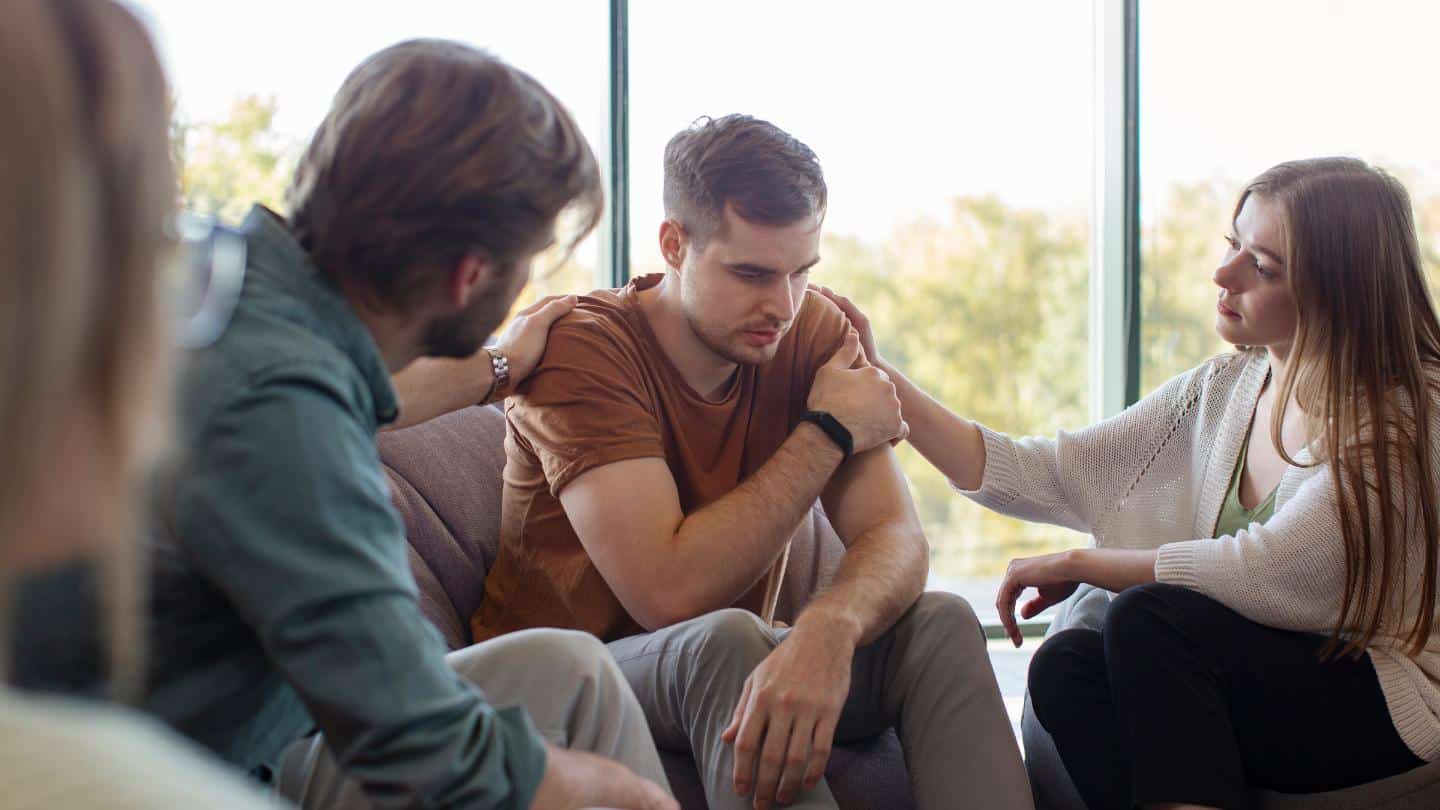At The Lovett Center, we understand the unique challenges that come with managing bipolar disorder. Our approach to bipolar disorder treatment in Houston, TX, is centered on personalized care, compassion, and evidence-based practices. We believe in empowering individuals with the tools to manage their symptoms and improve their quality of life.
Understanding Bipolar Disorder
Bipolar disorder is a complex mental health condition characterized by extreme mood swings, including emotional highs (mania or hypomania) and lows (depression). These mood shifts can significantly impact daily life, making maintaining relationships, work, and overall well-being difficult. While living with bipolar disorder can be challenging, it’s important to remember that with the right support and treatment, individuals can lead fulfilling lives.
Recognizing the Signs and Symptoms
Bipolar disorder can manifest in different ways, and recognizing the signs is the first step towards getting help. Symptoms can vary in intensity and duration, but they generally fall into two categories: manic episodes and depressive episodes.
- Manic Episodes: During a manic episode, individuals may experience elevated energy levels, increased activity, and an exaggerated sense of well-being. They might talk rapidly, have racing thoughts, or take on multiple projects simultaneously. However, this high energy can also lead to impulsive behavior, poor decision-making, and a lack of insight into their actions.
- Depressive Episodes: On the other hand, depressive episodes can be marked by overwhelming sadness, fatigue, and a lack of interest in activities once enjoyed. These periods can be debilitating, making it hard to get out of bed, concentrate, or interact with others.
For those experiencing bipolar disorder, the cycle between these episodes can be unpredictable and exhausting. However, our bipolar disorder treatment in Houston offers the support needed to handle these challenges. Early professional help is crucial for effective management of bipolar disorder.

Types of Bipolar Disorder
Bipolar disorder is not a one-size-fits-all condition. Whereas it encompasses several different types, each with its own unique characteristics and symptoms. Understanding the specific type of bipolar disorder an individual has is crucial for tailoring the most effective treatment plan. Here’s a closer look at the main types of bipolar disorder:
Bipolar I Disorder
Bipolar I Disorder is often what people think of when they hear “bipolar disorder.” It is characterized by at least one manic episode that lasts at least seven days or is so severe that immediate hospitalization is necessary. These manic episodes are often followed by depressive episodes that can last for weeks or months.
In some cases, individuals with bipolar I may experience episodes of depression or a mixed episode, which includes symptoms of both mania and depression simultaneously. The intensity and duration of manic episodes in bipolar I make it one of the most severe forms of the disorder.
Key features of bipolar I disorder:
- At least one full-blown manic episode
- Episodes of depression usually follow
- Manic symptoms include extreme energy, decreased need for sleep, impulsive behavior, and grandiose ideas
- Depression symptoms include deep sadness, loss of interest in activities, fatigue, and suicidal thoughts
Bipolar II Disorder
Bipolar II Disorder is characterized by a pattern of depressive episodes and hypomanic episodes, which are less severe than the full-blown manic episodes seen in bipolar I. Individuals with Bipolar II experience hypomania, a milder form of mania that doesn’t cause significant disruption to daily life but can still lead to erratic behavior and impulsive decisions. Our bipolar disorder treatment in Houston addresses these complexities with targeted approaches to manage both hypomanic and depressive symptoms effectively.
The depressive episodes in Bipolar II, however, can be just as severe as those in Bipolar I, often leading to challenges in daily functioning and quality of life.
Key features of bipolar II disorder:
- Presence of at least one major depressive episode and one hypomanic episode
- Hypomania involves elevated mood and increased activity but does not impair function or require hospitalization
- Depressive episodes are more frequent and can be severe
- Often misdiagnosed as depression due to the subtlety of hypomanic symptoms
Cyclothymic Disorder (Cyclothymia)
Cyclothymic Disorder, or Cyclothymia, is a milder form of bipolar disorder. It involves chronic fluctuations in mood that include numerous periods of hypomanic symptoms as well as periods of depressive symptoms.
However, these symptoms are not as severe or prolonged as the full-blown episodes seen in Bipolar I or II. Cyclothymia often goes undiagnosed because the symptoms may seem less disruptive, but they can still lead to significant emotional turmoil and instability over time.
Key features of cyclothymic disorder:
- Chronic mood fluctuations for at least two years (one year in children and adolescents)
- Symptoms are less severe than those in Bipolar I or II
- Periods of hypomanic and depressive symptoms that do not meet the full criteria for a hypomanic or depressive episode
- Often perceived as having a “moody” personality
Other Specified and Unspecified Bipolar and Related Disorders
Professionals use these categories when a person has symptoms that do not clearly fit into the diagnostic criteria for Bipolar I, Bipolar II, or Cyclothymia but still experience significant mood disturbances. These can include rapid cycling, where a person experiences four or more mood episodes (mania, hypomania, or depression) within a year, or when the symptoms are triggered by certain substances or medical conditions. For those dealing with these complex cases, seeking specialized bipolar disorder treatment in Houston is crucial.
Key features of other specified and unspecified bipolar and related disorders:
- Symptoms that cause significant distress or impairment but do not meet the full criteria for Bipolar I, II, or Cyclothymia
- This may include rapid cycling or mood disturbances induced by medications or substance use
- Requires careful assessment to determine the best course of treatment
Importance of Accurate Diagnosis
Understanding the specific type of bipolar disorder is essential for effective treatment. The Lovett Center provides comprehensive evaluations to accurately diagnose the type of bipolar disorder an individual may be experiencing. With a correct diagnosis, we create a treatment plan that addresses the unique challenges associated with each type. Ultimately, helping clients achieve better mood stability and a higher quality of life.
Whether it’s through medication management for bipolar disorder, therapy, or lifestyle interventions, our team is dedicated to offering personalized care that meets specific needs.

Why Choose The Lovett Center for Bipolar Disorder Treatment?
Choosing the right treatment center is a critical decision. The Lovett Center offers comprehensive Houston bipolar disorder treatment tailored to each individual’s needs. Moreover, our multidisciplinary team of mental health professionals includes psychiatrists, therapists, and counselors who are dedicated to providing holistic care.
- Individualized Treatment Plans: We recognize that no two individuals experience bipolar disorder in the same way. That’s why we develop personalized treatment plans that address specific symptoms, triggers, and goals. Whether someone experiences rapid cycling, mixed episodes, or a predominant mood state, our team works closely with them to create a plan that fits their lifestyle.
- Evidence-Based Approaches: Our treatment methods are grounded in the latest research and best practices in the field of mental health. We utilize a combination of psychotherapy, medication management, and lifestyle modifications to help stabilize mood swings and prevent relapse.
- Compassionate Care: At The Lovett Center, we strive to create a supportive and empathetic environment. We know that seeking treatment for bipolar disorder can be overwhelming, and our team is here to guide clients every step of the way. We prioritize building strong therapeutic relationships, fostering trust, and offering the encouragement they need to navigate their treatment journey.
Comprehensive Treatment Options
Effective bipolar disorder treatment in Houston often requires a multifaceted approach. The Lovett Center offers a variety of therapies and services designed to address the diverse needs of our clients.
- Medication Management: Medication can play a crucial role in stabilizing mood swings associated with bipolar disorder. Our psychiatrists work closely with clients to identify the most effective medication regimen, monitor progress, and adjust treatment as needed. Whether it’s mood stabilizers, antipsychotics, or antidepressants, our goal is to find the right balance to help clients maintain emotional equilibrium.
- Psychotherapy: Talk therapy is a fundamental component of bipolar disorder treatment. Through regular sessions with our licensed therapists, clients can explore the underlying causes of their mood swings, learn coping strategies, and develop healthier thought patterns. Cognitive-behavioral therapy (CBT), dialectical behavior therapy (DBT), group therapy, and interpersonal therapy are just a few of the modalities we offer.
- Lifestyle and Wellness Programs: Managing bipolar disorder extends beyond therapy sessions and medication. We emphasize the importance of lifestyle changes, such as maintaining a regular sleep schedule, engaging in physical activity, and developing stress-reduction techniques. Our wellness programs are designed to complement treatment and promote overall well-being.
- Family Involvement: Bipolar disorder doesn’t just affect the individual; it impacts the entire family. We offer family therapy sessions to help loved ones understand the condition, improve communication, and create a supportive home environment. Educating families about bipolar disorder can significantly enhance treatment outcomes and provide much-needed support for everyone involved.
The Role of Support Networks in Treatment
Building a strong support network is essential for anyone managing bipolar disorder. At The Lovett Center, we encourage clients to engage with support groups, both within our facility and in the broader Houston community. Our bipolar disorder treatment in Houston emphasizes the importance of these connections. Meeting others who are going through similar experiences can provide comfort, reduce feelings of isolation, and offer practical advice for coping with the challenges of bipolar disorder.
Continuity of Care
Bipolar disorder is a long-term condition that requires ongoing management. The Lovett Center is committed to providing continuous care, even after the initial treatment phase. Our team works to develop a long-term maintenance plan that includes regular check-ins, medication reviews, and access to resources that can help clients stay on track.
- Relapse Prevention: We understand that bipolar disorder can be unpredictable, and relapses are possible. However, with proper planning and vigilance, relapses can be minimized or managed effectively. Our therapists help identify early warning signs of mood changes and create a plan to address them promptly.
- Crisis Intervention: In moments of crisis, it’s essential to have a trusted team that individuals can rely on. The Lovett Center offers crisis intervention services for clients who may be experiencing severe symptoms or who need immediate support. Our goal is to provide stability and reassurance during these challenging times.
Taking the First Step Toward Treatment
Deciding to seek treatment for bipolar disorder can be daunting, but it’s a courageous and important step. At The Lovett Center, we are here to support you or your loved one through every stage of the journey. We designed our bipolar disorder treatment in Houston to help clients regain control over their lives, manage their symptoms, and build a brighter future.
We encourage you to reach out to our team to learn more about our services and how we can assist you. Whether you’re exploring treatment options for yourself or a loved one, we’re here to answer your questions and provide the guidance you need.
FAQs
1. What should I expect during my first consultation at The Lovett Center?
During your initial consultation, you’ll meet with one of our mental health professionals who will take the time to understand your symptoms, medical history, and personal goals. This session will involve a comprehensive assessment to help us develop a treatment plan tailored to your needs.
2. Is medication necessary for bipolar disorder treatment?
Medication is often an important component of treatment for bipolar disorder, but it’s not the only one. Our approach combines medication with therapy and lifestyle changes to provide the most effective care.
3. How long does bipolar disorder treatment typically last?
The duration of treatment varies depending on individual needs. Some clients may require short-term intensive treatment. Whereas others may benefit from ongoing support over a longer period. Our team will work with you to determine the best plan for your situation.
4. Can bipolar disorder be cured?
Bipolar disorder is a chronic condition, meaning it doesn’t have a cure, but it can be effectively managed with the right treatment. Many individuals with bipolar disorder live full and productive lives with proper care.
5. Will my family be involved in my treatment?
Family involvement can be a key component of successful treatment. We offer family therapy sessions to help loved ones understand bipolar disorder, improve communication, and provide support.
6. What makes The Lovett Center’s bipolar disorder treatment unique?
Our approach to Houston bipolar disorder treatment is personalized, compassionate, and evidence-based. We focus on the whole person. We offer a range of therapies and support services to address the diverse needs of our clients.

Find Compassionate Bipolar Disorder Treatment in Houston, TX
Managing bipolar disorder is a lifelong journey. However, with the right support and treatment, it’s possible to live a stable and fulfilling life. The Lovett Center provides comprehensive bipolar disorder treatment with a focus on individualized care and compassionate support. If you or a loved one is struggling with bipolar disorder, we invite you to take the first step toward healing with our experienced team.
Contact us today to learn more about our bipolar disorder treatment in Houston and how we can help you navigate this journey.

